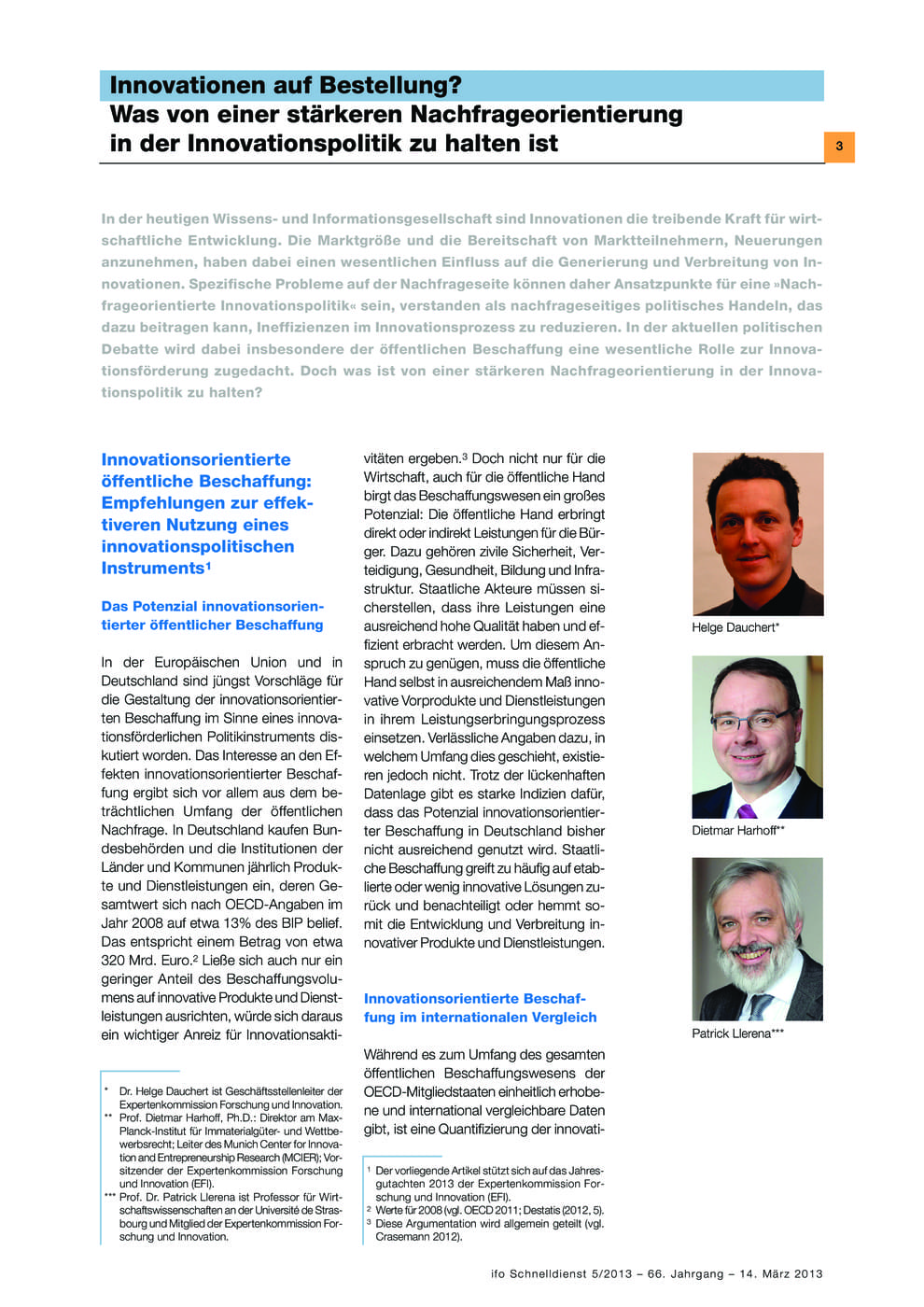Innovation on Demand? The Implications of Stronger Demand Orientation for Innovation Policy
ifo Institut, München, 2013
ifo Schnelldienst, 2013, 66, Nr. 05, 03-19

In recent years the debate over the effects of public demand as a driver for innovation and economic growth both in Germany and internationally has become far more dynamic. Helge Dauchert, Dietmar Harhoff and Patrick Llerena, the Expert Commission on Research and Innovation, primarily attribute this interest in public procurement as a policy instrument for promoting innovation to the sheer size of the public procurement market which, according to OECD estimates, totalled around 13% of GDP in Germany in 2008. In general, the authors definitely see potential for greater orientation towards innovation in public procurement, which often remains untapped due to the heavy fragmentation of public procurement in Germany and the lack of any incentive to purchase innovative services. Wolfgang Crasemann, German Federal Ministry of Economics and Technology, describes how the government and the EU Commission wish to promote public procurement as a policy instrument for promoting innovation more actively in the future. Some EU member states have already introduced programmes focused on the public procurement of innovation. Carla Dekker from the Dutch Ministry of Economics presents her country’s SBIR-Initiative, which – based on the model of the U.S. Small-Business-Innovation-Research-Program – financially supports innovative solutions from an idea to market maturity (and eventual public procurement) in a multi-step process. Oliver Falck, Simon Wiederhold and Ludger Wößmann, Ifo Institute, demand that the planned measures and pilot projects to strengthen innovation orientation in public procurement should be accompanied by convincing assessments of their effectiveness and financial viability before their large-scale introduction.